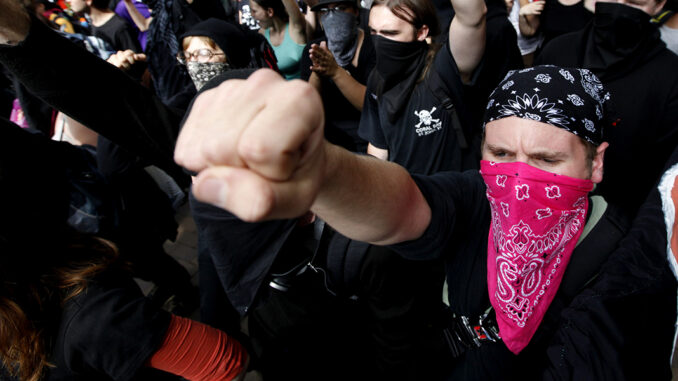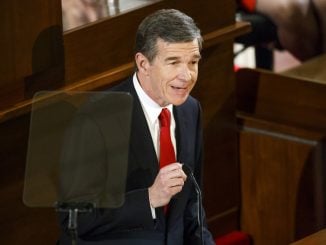
RALEIGH — North Carolina Gov. Roy Cooper vetoed House Bill 237 on June 21, the 97th veto of his tenure.
“This legislation creates a gaping loophole for secret, unlimited campaign money in the middle of an election year,” Cooper wrote in his veto message. “While voters are kept in the dark, this scheme allows anonymous out-of-state billionaires to flood North Carolina with campaign contributions to rescue extreme right-wing candidates that Republicans now fear will lose. The legislation also removes protections and threatens criminal charges for people who want to protect their health by wearing a mask.”
In a statement, Sen. Danny Earl Britt (R-Robeson) responded that lawmakers would override the veto.
“Bad actors have been using masks to conceal their identity when they commit crimes and intimidate the innocent,” Britt said. “Instead of helping put an end to this threatening behavior, the governor wants to continue encouraging these thugs by giving them more time to hide from the consequences of their actions.”
Britt added, “I look forward to casting a vote to override this veto and allowing those with actual health concerns to protect themselves and others.”
House Speaker Tim Moore (R-Kings Mountain) said the House will “swiftly override Governor Cooper’s veto of this legislation that prevents violent protestors from masking their identity and updates campaign finance law to even the playing field for both political parties.”
The bill modifies exemptions for wearing masks, allowing medical-grade masks for disease prevention but requiring removal upon law enforcement request or for identification. This change aims to balance public health concerns with law enforcement needs.
Notably, the bill enhances punishments for crimes committed while wearing a mask or disguise to conceal identity. Such offenses will be upgraded by one class level, potentially resulting in more severe sentences for masked criminals.
To protect religious freedoms during emergencies, the bill prohibits government orders or regulations from imposing additional limitations on religious institutions that don’t apply to other businesses or organizations. This provision aims to ensure equal treatment of religious entities during crises.
The legislation significantly increases penalties for impeding traffic during demonstrations by elevating it from a Class 2 misdemeanor to a Class A1 misdemeanor if part of a planned demonstration. Repeat offenses raise the penalty to a Class H felony. Additionally, the bill creates civil liability for demonstration organizers if emergency vehicles are obstructed resulting in injury or death.
The bill also makes substantial changes to campaign finance laws regarding federal political committees and organizations by allowing federal Super PACs and 527 committees to contribute to state political parties as long as corporate/union funds are kept separate.
While allowing more money from federal groups, the bill maintains donor disclosure requirements and bans on earmarking funds. Under the changes, federal committees only need to submit their existing FEC/IRS reports to the North Carolina State Board of Elections, not new reports. Additionally, Federal PACs would be able to donate to candidates during legislative sessions, subject to limits.
The changes are aimed at letting the Republican Governors Association’s Super PAC contribute directly to the state GOP, matching what the Democratic Governors Association has been doing through its non-Super PAC arm.
General Assembly Democrats staged a walkout opposing the changes, alleging they unfairly benefit Republicans for the 2024 elections.
Most provisions of the bill become effective upon it becoming law, with some sections having specific effective dates in late 2024. This staggered implementation allows time for affected parties to adjust to the new regulations.



